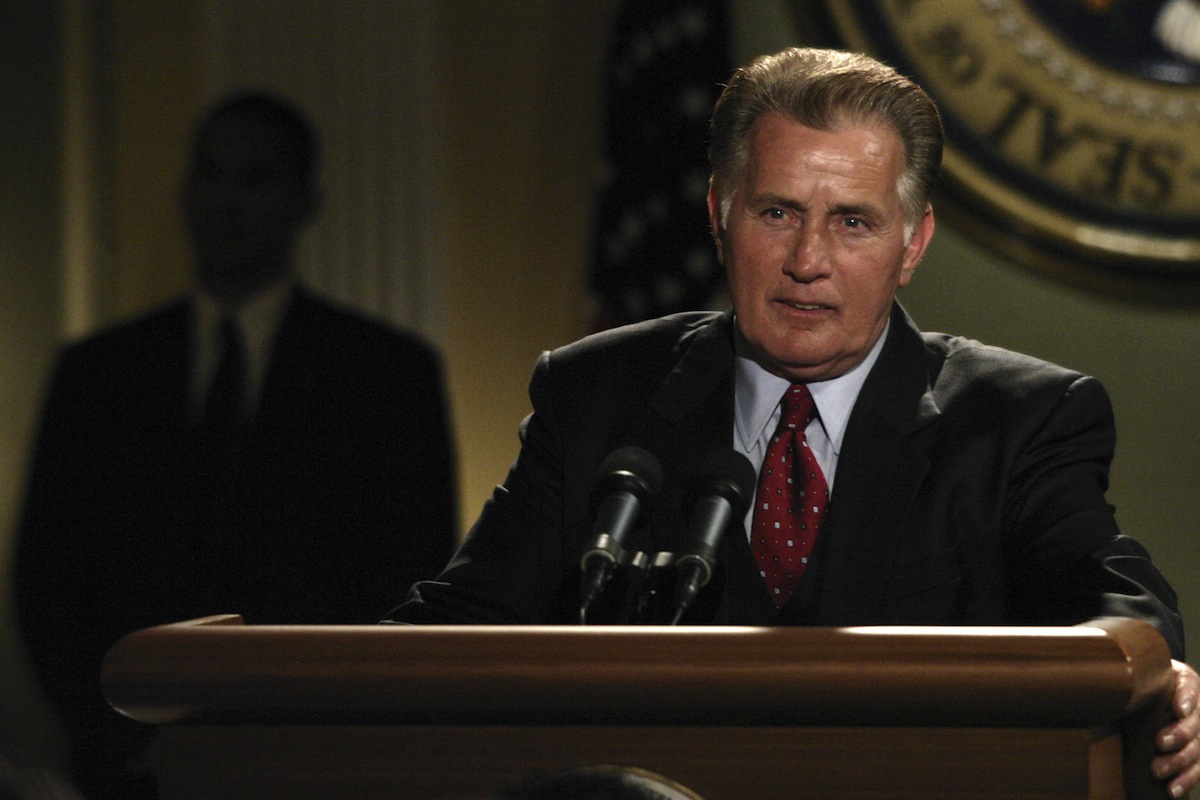
[Aaron Sorkin’s] ambitious new presidential drama, The West Wing (NBC, Wednesdays, 9 p.m. E.T.), like an ambitious presidency, swings wildly from the impressive to the insufferable.
Sorkin’s tendency toward the dramatic is exacerbated by casting serial over-emoter Martin Sheen as Democratic President Josiah Bartlet, who makes his first appearance speaking in the voice of God. Bursting into a showdown with religious conservatives, Sheen quotes the First Commandment, then unburdens himself of a pair of minute-and-a-half speeches while Coplandesque music swells and the camera cuts to admiring staff members, in case we’ve failed to notice how darned inspiring he is. There will be no curtains left in this Oval Office once Sheen has finished chewing the scenery.
—From James Poniewozik’s review of the first season of West Wing, from the Oct. 4, 1999, issue of TIME
A couple of years ago, when I and some of my fellow critics lambasted Aaron Sorkin’s The Newsroom as being speechy and sanctimonious, one defense I heard was: “Why didn’t they say the same things about The West Wing?” Answer: I pretty much did, as you can read in my initial review, based on the series pilot, from fall 1999.
The West Wing was and remains a far, far better show than the two Sorkin dramas that followed it, The Newsroom and 2006’s Studio 60 on the Sunset Strip: its characters were better drawn, it had a sophisticated sense for making wonky policy topics lively and–though Sorkin can always make a sentence skip rope–he was never more rapid-fire brilliant than the four seasons that he essentially wrote the show single-handed. In 2007, I put the show on my list of the All-Time 100 TV Shows, and I’d probably do that again. When the show was at top form (“Two Cathedrals,” e.g.) it could be red-white-and-blue magic. (And all right—I was a little rough on Martin Sheen, who turned out to have a wry touch as Jed Bartlet.)
But I was never as devoted to the show as some of my fellow critics; I groused repeatedly during the run of years that it beat out The Sopranos for the Best Drama Emmy, and I’m pretty comfortable with that judgment. The show embodied the best of Aaron Sorkin’s work and showed signs of its worst excesses. But as with most original voices, you can’t have the one without the other. Nothing walk-and-talked quite like it.
Read the full 1999 review, free of charge, here in TIME’s archives: Capital Ideas
More Must-Reads From TIME
- The 100 Most Influential People of 2024
- The Revolution of Yulia Navalnaya
- 6 Compliments That Land Every Time
- Stop Looking for Your Forever Home
- If You're Dating Right Now , You're Brave: Column
- The AI That Could Heal a Divided Internet
- Fallout Is a Brilliant Model for the Future of Video Game Adaptations
- Want Weekly Recs on What to Watch, Read, and More? Sign Up for Worth Your Time
Contact us at letters@time.com